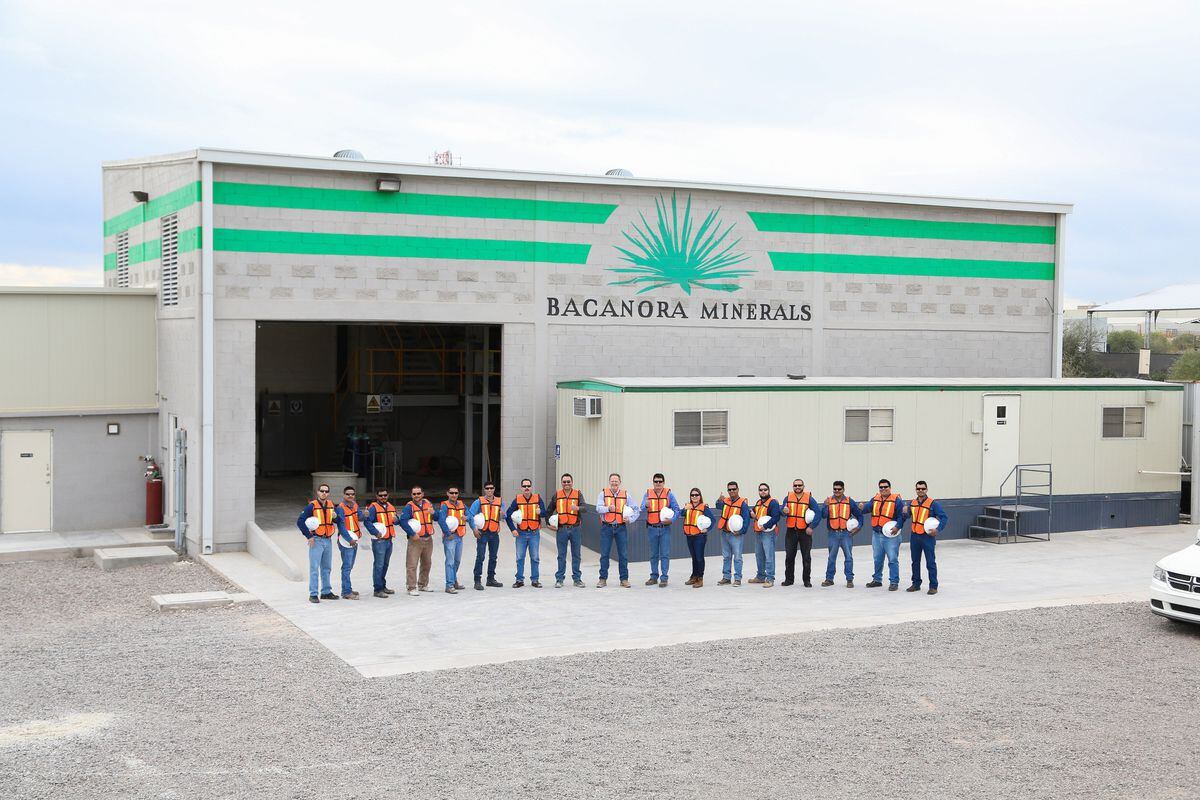The Mexican government canceled a lithium mining concession won by Chinese company Bacanora Lithium 12 years ago in Sonora, but the company, a subsidiary of Ganfeng Lithium, insists the fight has only just begun. Peter Scker, Bacanora’s executive director, assured, in an interview with EL PAÍS, that the company will navigate the Mexican justice system to maintain its license, even considering international lawsuits. “We are not ruling anything out. “We will retain our ownership of the license in full,” he said.
Bacanora has been working in Sonora since 2011. When they obtained the 50-year permit, there was no certainty that lithium was in the region, but the land looked promising. From 2011 to 2014, the company drilled more than 60,000 meters, producing a standard resource statement estimating that the licensed field had 8.8 million tonnes of lithium carbonate in the ground, so they went on to build a large pilot plant, a facility that was built to demonstrate to interested parties that they can extract and produce the minerals required for lithium batteries used, for example, in electric vehicles. The next stage is to build an $800 million complex to produce minerals on a large scale.
But their plans came to an abrupt halt when, in April 2022, Congress approved a mining law issued by President Andrés Manuel López Obrador that made lithium a “strategic mineral of the country.” The government then formed Litio Mx, a state company that had not been given a budget. The company’s founding decree uses ambiguous language stating that Litio Mx can partner with “institutions” in its lithium mining activities, which could potentially include profit-seeking private companies. A few weeks later, Bacanora’s concession was cancelled.
“Over the last 12 years, we have spent tens of millions of dollars in Sonora purchasing these licenses,” explains Secker from his UK office. When the initial changes to mining laws occurred, it was understood that companies holding legal concessions would receive the rights granted through those changes to the law, he said. “And of course, in early September, we were told that the Government was withdrawing the permit.”
“We don’t believe it’s legal and we’re going to defend all our legal rights to defend it because we’ve already spent tens of millions. We have exceeded all licensing requirements. We have built a pilot plant, we have designs for a project that will produce 35,000 tonnes of lithium carbonate per year. “This will be one of the largest factories in the world,” he said. That amount of lithium is enough to make one million electric vehicles, according to the company.
Last year, Bacanora filed an amparo and is still waiting for a court date in Sonora. When asked whether the company would consider applying to the World Bank arbitration tribunal for international disputes (ICSID), Secker replied: “We will take the Mexican legal route and then consider other things at a later date, but we are not ruling anything out. “We will retain our ownership of the license in full.”
Ganfeng has mines in Asia, Australia, Africa and South America, and Secker’s tone is conciliatory when talking about Mexico. The company, he said, is open to cooperating with authorities, be it the Federal Government, the Government of Sonora, or with the new state company Litio Mx.
“Ganfeng has the money to do this. It has the technology and people to develop this project without any help from the Government. However, we have been in discussions with the Government over recent years and are happy to work with them. We just need to resolve their real efforts to cancel the permit,” Secker said.
The assertion that López Obrador’s decision to cancel Chinese companies’ concessions was influenced by the United States, Mexico’s main trading partner, is nothing more than a “conspiracy theory,” Secker said. “I’ve heard it before. We believe that, from Mexico’s perspective, it would be better to have a lithium center in Sonora, where they could have their own lithium, produce their own batteries, supply their own vehicles, and then ship it to the US. There is a policy motivation for this and we must work to address it,” the executive concluded.
Subscribe here to the EL PAÍS México newsletter and receive all the important information about current events in the country

“Entrepreneur. Internet fanatic. Certified zombie scholar. Friendly troublemaker. Bacon expert.”


:quality(70)/cloudfront-us-east-1.images.arcpublishing.com/elfinanciero/ZTJV57HVVJGODLL3YBCDPNWTAQ.jpg)




